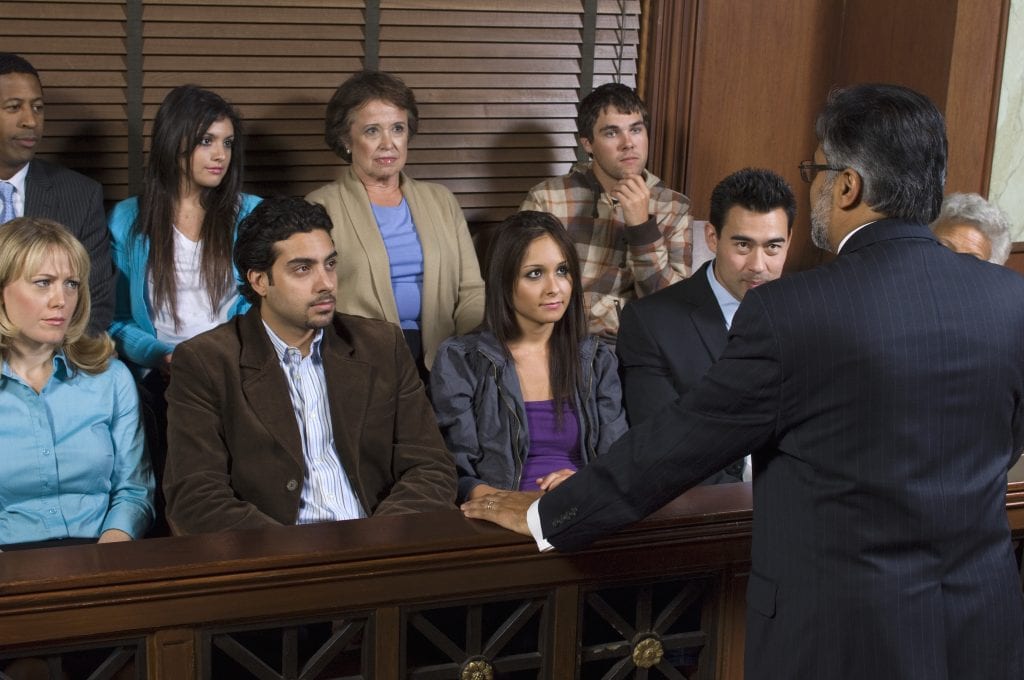If you are facing a criminal trial, you need to know how jurors are selected and the basis on which they may be excluded. Sometimes a prosecutor might try to exclude a juror on the basis of race or other discriminatory grounds. It could be because a party in a case may be racially similar to the juror. This could lead to bias. Prosecutors use peremptory challenges in removing a juror. But, this is wrong and unfair. So, your defense lawyer can object to this using another power – a Batson challenge. This means that they can tell the judge that the prosecutor’s motive in excluding a juror is prejudicial.
How can a prosecutor exclude a juror?
In a federal case, both the prosecutor and defense attorney can screen the jurors before trial. First, a judge or a lawyer asks questions from potential jurors. Then, they determine if they fit well. If they think the juror is unqualified, they can remove a potential juror from the panel. They can do so by showing a cause. A valid cause could be if the potential juror is a minor, is a close relative of the victim, or cannot speak English.
But, they can also remove a juror without cause by using the peremptory challenge. It means that they don’t have to give an explanation for removing a juror. The number of peremptory challenges available varies in each state. For example, in California, each side gets ten peremptory challenges to strike a potential juror in a criminal case.
Can you object prosecutor’s conduct of eliminating the juror on the basis of race?
Yes. You or your defense attorney can raise a Batson challenge. A Batson challenge may stop the prosecutor from removing a juror on the basis of race. It came out of a famous case – Batson v. Kentucky (1986). Once a Batson challenge is raised you need to show proof that the prosecutor’s peremptory challenge is discriminatory. If not, the judge may deny your claim.
If the judge agrees, then the burden to disprove discriminatory intent shifts on the prosecutor. He must show that he isn’t biased or that his peremptory challenge is not based on race. The reason should be legitimate and not suspicious. Lastly, if the judge agrees that the prosecutor has provided a neutral reason. Then, the burden to disprove shifts back on you. You must provide reasoning that the prosecutor’s neutral claim is false or a lie.

What happens if the court rejects a Batson challenge?
For some prosecutors rejecting a juror on the basis of race is very easy. There is a bit of wiggle room in disqualifying a juror — some say it is like proving that the sun rises in the East. This is because there are thousands of grounds to reject a juror. The Batson challenge may not be successful in all cases. So, a prosecutor might take advantage and remove a juror on the basis of race. But, if the court fails to see the prosecutor’s biased intent and rejects the Batson challenge. You can appeal this. On appeal, the conviction could be reversed and could get you a new trial. The prosecutor’s misuse of a peremptory challenge is also a violation of the Fourteenth Amendment Right to Equal Protection. This is part of the Baston case’s claim.
The Takeaway:
A prosecutor might try to remove a potential juror from a jury pool on basis of the juror’s race. They have the power to remove a juror if they are unqualified for some reason. But they cannot do so on the basis of race, sex or ethnicity. It is illegal and prohibited. If you or your loved one are facing a criminal trial and believes that a juror is excluded on the basis of race. You or your defense lawyer can raise a Batson challenge or appeal it later. This could get you a new trial.






